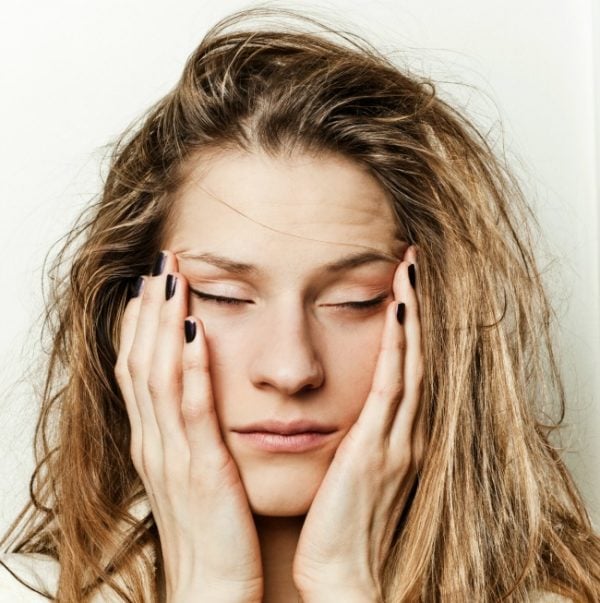Having fine, oily hair that needs washing everyday has to be the most annoying part of my beauty routine.
Most mornings I wish I could hit snooze a few more times but addressing my gross, greasy roots takes precedence over extra zzz’s.
I’d heard it’s possible to ‘teach’ your scalp to produce less oil buy washing it less frequently, so I decided to ask a few doctors if that’s true – along with some other oily hair questions.
Is it bad to shampoo everyday?
First thing first – people had told me that washing my hair everyday was ‘bad’, so I wanted to clear that up.
“It’s fine to wash and condition your hair every day, as long as you are using a gentle daily use shampoo,” Tricologist Kate Dawes told Mamamia.
“Be aware that by removing the natural oils (known as sebum), your sebaceous glands will naturally produce more. Always look for shampoos that are SLS and paraben free, as well as pH balanced.”
David Salinger, Director at the International Association of Trichologists, agrees.
“No, it’s not bad. We wash our faces everyday and, likewise, should shampoo our scalp daily. But use a shampoo with a pH of about 5.5.”
In fact, not washing hair often enough can actually breed bacteria.
“Infrequent shampooing will lead to scalp scaling, itching or inflammation. As sebum accumulates on the scalp, yeast infections develop,” Salinger said.
“Conditioning is mainly necessary for those who chemically treat their hair. For the who don’t do anything to their hair, a conditioner once a week is sufficient.”

Top Comments
I say yes - grew up washing my hair every single day and now I wash once or twice a week, depending on what type of exercise I do and how sweaty I get. Took a gradual build up of every second day, every third day etc. My hair looks and feels just as healthy and I save so much time every day!
I am of the oily hair crowd and was essentially every day, occasionally skipping on weekends. Might try taking some zinc!